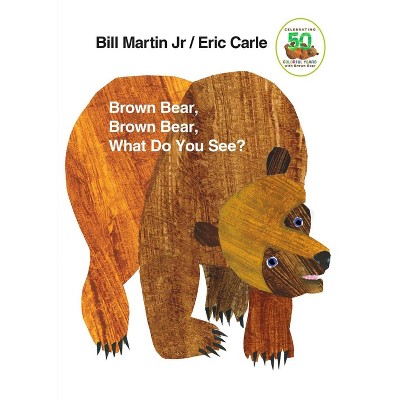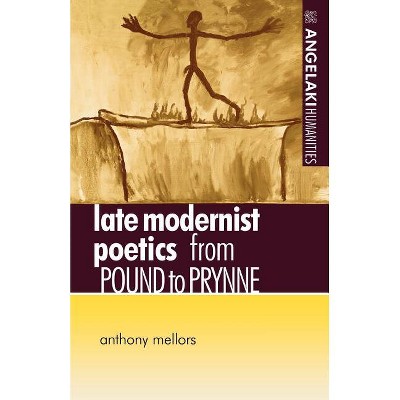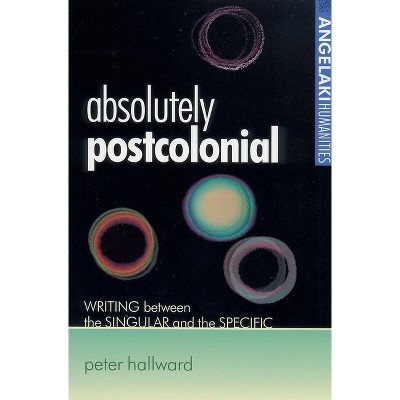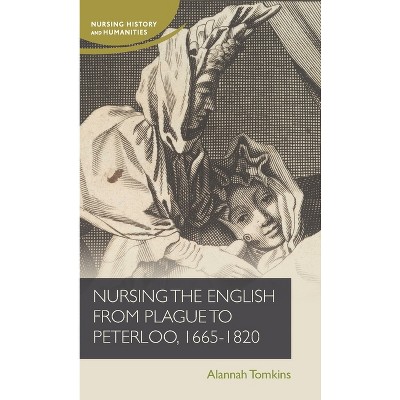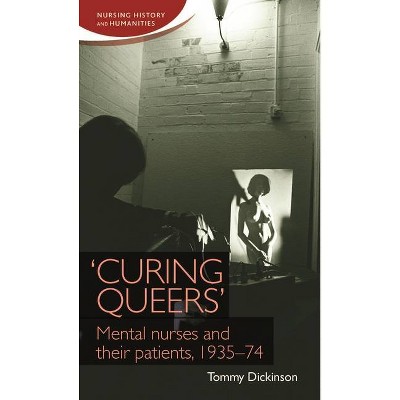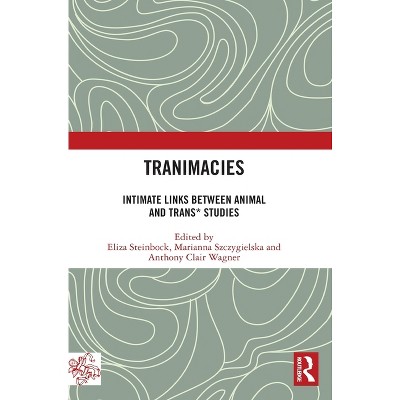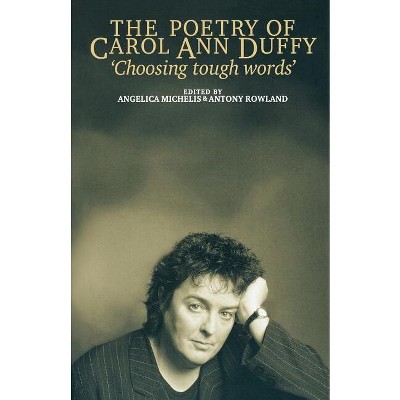Polysituatedness - (Angelaki Humanities) by John Kinsella (Paperback)

About this item
Highlights
- This book is concerned with the complexities of defining 'place', of observing and 'seeing' place, and how we might write a poetics of place.
- About the Author: John Kinsella is Professor of Literature and Sustainability at Curtin University and a Fellow of Churchill College, Cambridge University
- 448 Pages
- Literary Criticism, Poetry
- Series Name: Angelaki Humanities
Description
About the Book
John Kinsella is one of the pre-eminent poets writing today; Polysituatedness provides a sequel to his critical work Disclosed Poetics. If offers an approach to creating poems and literary texts constituted by multiple places, considering the relationships that occur between place, individual and the natural environment.Book Synopsis
This book is concerned with the complexities of defining 'place', of observing and 'seeing' place, and how we might write a poetics of place. From Kathy Acker to indigenous Australian poet Jack Davis, the book touches on other writers and theorists, but in essence is a hands-on 'praxis' book of poetic practice. The work extends John Kinsella's theory of 'international regionalism' and posits new ways of reading the relationship between place and individual, between individual and the natural environment, and how place occupies the person as much as the person occupies place. It provides alternative readings of writers through place and space, especially Australian writers, but also non-Australian. Further, close consideration is given to being of 'famine-migrant' Irish heritage and the complexities of 'returning'. A close-up examination of 'belonging' and exclusion is made on a day-to-day basis. The book offers an approach to creating poems and literary texts constituted by experiencing multiple places, developing a model of polyvalent belonging known as 'polysituatedness'. It works as a companion volume to Kinsella's earlier Manchester University Press critical work, Disclosed Poetics: Beyond Landscape to Lyricism.From the Back Cover
Polysituatedness is concerned with the complexities of defining place, of observing and seeing place, and how we might write a poetics of place. It argues for a 'polysituatedness' of presence, in which all places we have been part of (lived in, visited, stayed in, inherited, even imagined) become enmeshed with a sense of belonging (or not) and posits an alternative model for participation in community and landscape. It does this in the context of a world-view of 'international regionalism', in which international lines of communication are seen to enhance regionality.
From Kathy Acker to indigenous Australian poet Jack Davis, the book touches on other writers and theorists, but in essence is a hands-on praxis book of poetic practice, using essays, journal entries, review and commentary on writing and ecology. Considering modes of belonging and community ('agoras') in conjunction with issues of isolation, the book traces a journey from 'home' at Jam Tree Gully in wheatbelt Western Australia, via a range of personal experiences and intertextual interactions/readings with other works, to Schull, in West Cork, Ireland, where a consideration of belonging and land is read through ancestral displacement via famine and the politics of empire. However, this is not a work of history, but of subjectivity as it affects ways of seeing. It is also about the making of poems out of place, and questions the politics of making and the politics of place; displacement, but with constant renewal and replacement. Polysituatedness works as a companion volume to Kinsella's earlier Manchester University Press critical work, Disclosed poetics: Beyond landscape to lyricism. It will be of interest to students and lecturers in a range of subjects including environmental and Australian literature, poetry and Irish studies.Review Quotes
'The collection of critical essays, journal entries and poems, concerned with the complexities of defining 'place', ways of seeing and a poetics of place, explores his praxis in Jam Tree Gully, near Western Australian wheatbelt, the Mizen head peninsula, west Cork, and at Churchill College, Cambridge. He argues that one's place-identification is polyvalent and that place is a paradoxical condition of presence in recognition that individuals occupy many spaces at once and that no place is isolated from others. His engagement with displacement, the politics of making poems out of place, migration, and concern with animal, land and human rights radically challenges and offers a feast for the reader.'
Tears in the fence Issue 66
Stride Magazine 'The result is a book that provides so much to think about regarding our social, cultural, and political relationships to the world, that one picks it up and reexamines it over time, not only because of its 428 pages, including a rich bibliography, but also because of Kinsella's creative use of language. There is pleasure in engaging his vocabulary and looking up the words for poetic forms or geological formations--concretions, djitty-djitty, boustrophedon.'
Wendy Singer, Kenyon Review September 2018
About the Author
John Kinsella is Professor of Literature and Sustainability at Curtin University and a Fellow of Churchill College, Cambridge University



